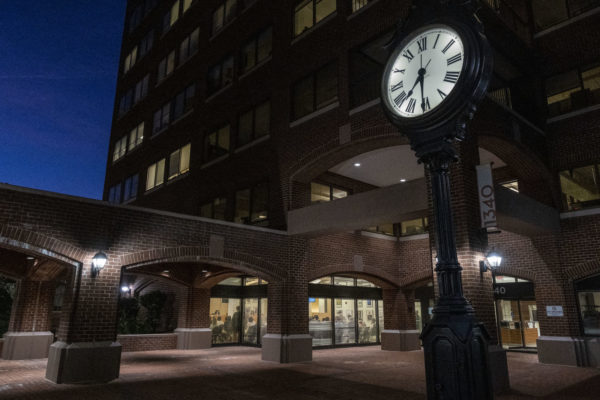
(Updated 4:20 p.m.) Alexandria’s School Board is meeting tomorrow for a seemingly innocuous budget revision, but city leaders say the truth is the School Board is walking back a potentially illegal decision made without communicating with the City Council.
Like previous work sessions, a joint City Council/School Board meeting became tense as the discussion turned to funding. The fiscal year 2024 combined funds budget for Alexandria City Public Schools (ACPS) details the revenues and expenditures.
The one-page document has a breakdown of the operating budget for the upcoming FY 2024 school year:
The FY 2024 Operating budget in the amount of $333,442,978 for both revenues and expenditures. This includes other financing sources and uses, as well as a planned use of general fund balance in the amount of $8,722,578, including a transfer out to the Capital Improvement Program of $1,966,021…
One note at the bottom of that section, however, put ACPS in hot water.
The $1,966,021 transfer to the CIP shall be contingent upon the following actions from the City of Alexandria:
- The summer youth employment program grows to a minimum of 200
participants- A partnership with ACPS is established to provide a minimum of 150 students
with employment- Explore increasing the salary for the program from $12/hour to at least $15/hour
to ensure the Alexandria livable wage is met
“There is some language that is technically impossible and inappropriate and so we want to do the adjustments to that motion prior to July 1 so that we are in compliance with our budget expectations and needs,” said School Board Chair Meagan Alderton. “Essentially: the way that the motion reads there are concerns about the use of the word contingency.”
The conditions could be interpreted as holding the funds hostage pending policy decisions from the City of Alexandria, but ACPS officials said that wasn’t the intent. Alderton said the issue came down to a miscommunication between the School Board and the City Council.
“We would be removing language around a contingency for CIP funds which makes it seem like it’s in exchange for our school system and ACPS students having access to youth employment programs,” Alderton said.
A revised version of the fiscal year 2024 combined funds budget excludes the conditions, but at the joint meeting, members of the City Council said they were frustrated and concerned about how the language made it that far through the budget process.
“I’ll put aside the legal aspect for this for a second, which is not insignificant, but this is unfortunate,” said Mayor Justin Wilson. “I appreciate that it’s getting corrected quickly… This was something that in 13 budgets I’ve been a part of I’ve never seen anything like this.”
Wilson said the issue was also raised frustratingly late, with city leaders only being made aware of the contingency on the day of their meeting.
City Council member John Chapman said the contingency and the last-minute meeting to reverse it is further indicative of the strained communications and relationship between the School Board and the City Council.
“I’m trying not to play this up too much, but I think this, along with other conversations we’ve had in this room, seems to be a regular misunderstanding about our respective positions and relationship to each other as different bodies,” Chapman said.
Alderton also raised the possibility of ACPS switching to a revenue-sharing agreement, like Arlington County. Under a revenue-sharing agreement, a percentage of the tax revenue goes directly to the school system rather than being allocated as part of the municipal budget.
“I want to put my plug in for the revenue sharing agreement,” Alderton said. “I know it definitely has to be talked about… I do wonder if a revenue-sharing agreement is a more mature way for us to handle this as a city because it’s difficult for cities where you have a budget as a city and to have the tension about what goes where is challenging. It seems to work in other places.”
Chapman responded that the current conflicts and miscommunications don’t bode well for ACPS responsibly managing a revenue-sharing agreement.
“It can work here as it seems to work in other places, but this example perfectly fits why we are not there yet,” Chapman said. This example highlights why we’re ways away. We have not established systematic communication channels to make sure we are communicating properly and timely and speaking the same language even when we disagree… Folks basically went around Council. They didn’t engage any of the members of the Council and the Mayor just found out. That’s taking several steps back.”

